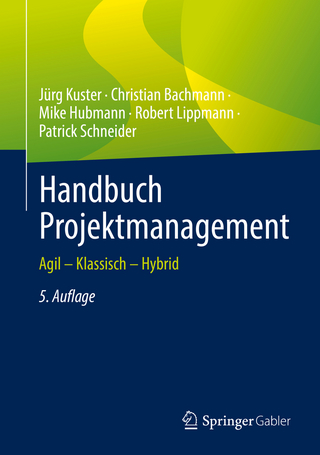
The Complexity of Proceduralized Tasks
Springer London Ltd (Verlag)
978-1-4471-2512-9 (ISBN)
Jinkyun Park obtained his first degree in nuclear engineering in 1991 at Hanyang University in Seoul, Republic of Korea. He later earned his PhD degree in nuclear engineering at the Korea Advanced Institute of Science and Technology in Daejeon, Republic of Korea. He joined the Korea Atomic Energy Research Institute in 2000, and now works as a senior researcher in the institute's Integrated Safety Assessment Division. His main research interest is in the performance of nuclear power plant operators who have to cope with an emergency by following a procedure. Dr Park uses the theories of human reliability analysis and cognitive systems engineering to suggest a practical way to improve the performance of human operators under emergencies.
Foundation.- Complexity of Proceduralized Tasks.- Significant Complexity Factors.- Complexity Evaluation.- to Software Complexity.- Emergency Tasks Prescribed in the EOPs of NPPs.- Analyzing the Required Actions Prescribed in Emergency Tasks.- Quantifying the Contribution of Task Complexity Factors.- Integrating the Contribution of Each Complexity Factor.- Validation of TACOM Measure.- Promising Applications and Outlook.- Promising Applications.- Concluding Remarks with Outlook.
| Reihe/Serie | Springer Series in Realibility Engineering |
|---|---|
| Zusatzinfo | XXIV, 189 p. |
| Verlagsort | England |
| Sprache | englisch |
| Maße | 155 x 235 mm |
| Themenwelt | Naturwissenschaften ► Physik / Astronomie |
| Technik ► Bauwesen | |
| Technik ► Maschinenbau | |
| Wirtschaft ► Betriebswirtschaft / Management ► Projektmanagement | |
| Wirtschaft ► Betriebswirtschaft / Management ► Unternehmensführung / Management | |
| Schlagworte | Complexity • Human Performance • Proceduralized Tasks • Quantification Scheme • Safety Critical System |
| ISBN-10 | 1-4471-2512-6 / 1447125126 |
| ISBN-13 | 978-1-4471-2512-9 / 9781447125129 |
| Zustand | Neuware |
| Haben Sie eine Frage zum Produkt? |
aus dem Bereich


